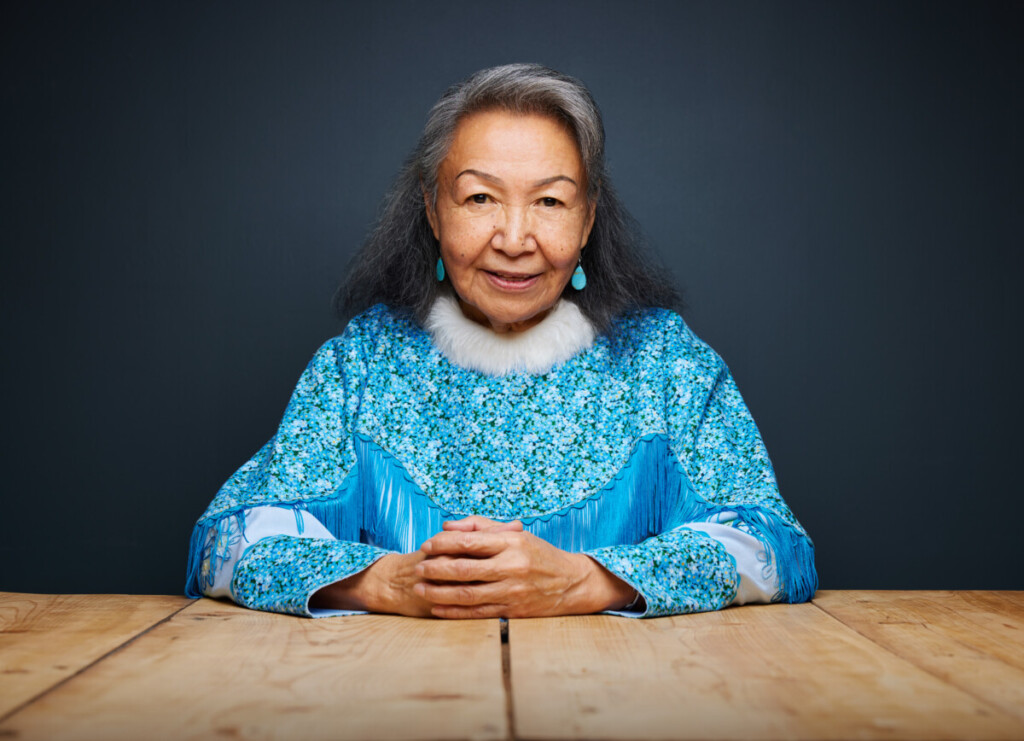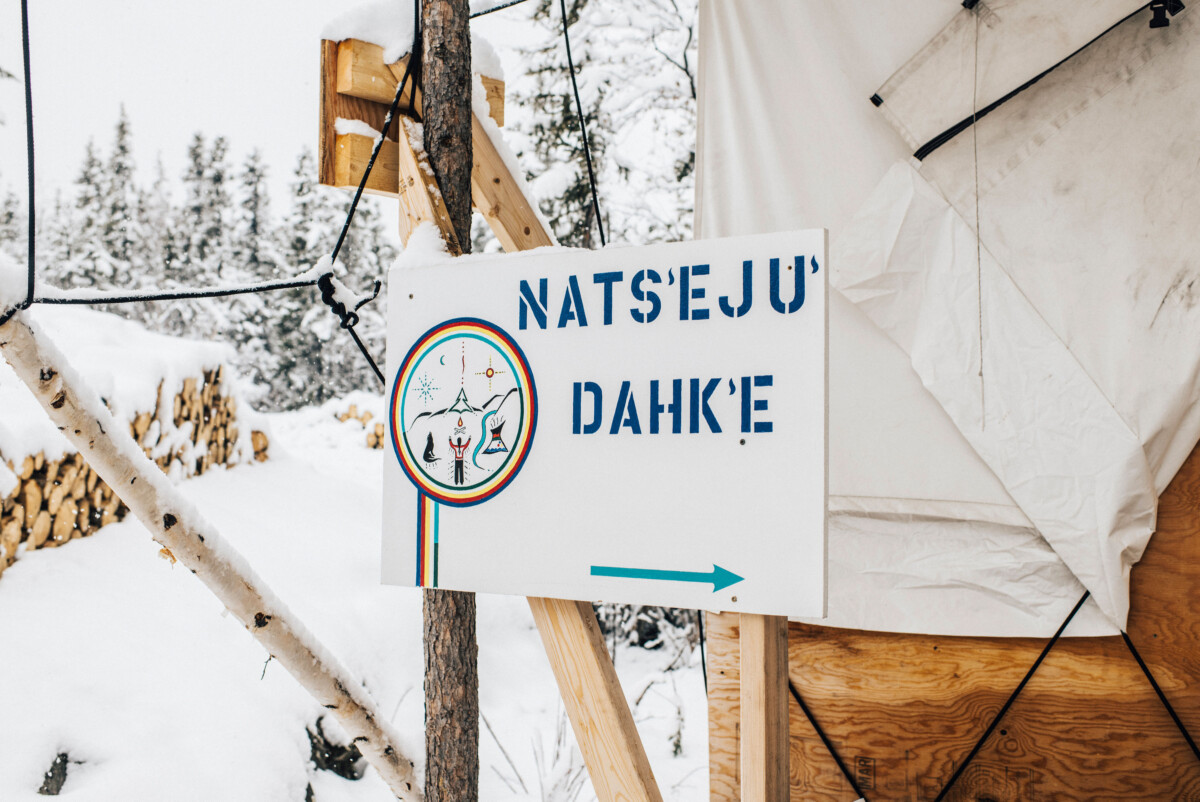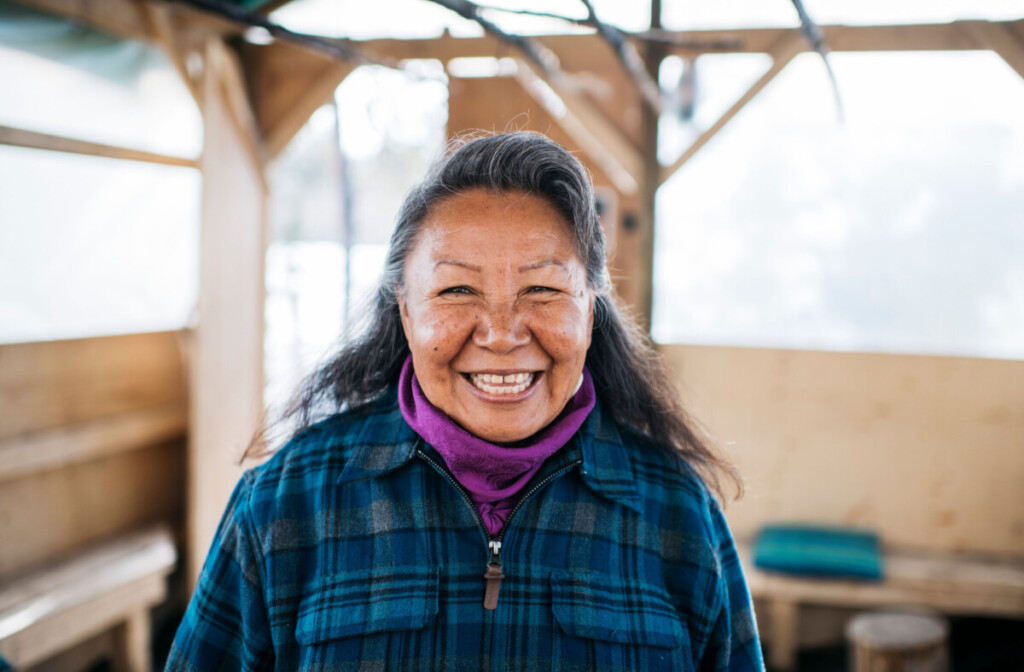- My MOC
- Directory
Menu
 3 MIN READ
3 MIN READ
Elder Be’sha Blondin is the recipient of the 2023 Dr. Thomas Dignan Indigenous Health Award
Elder Be’sha Blondin – a Sahtu Dene Elder, grandmother, healer, midwife, cultural teacher and activist in the Northwest Territories – is this year’s winner of the Royal College’s Dr. Thomas Dignan Indigenous Health Award. The annual award celebrates Canadian Indigenous physicians or physicians-in-training, Elders or Knowledge Keepers who epitomize a zeal and devotion to Canadian Indigenous rights and the dogged pursuit of justice for Indigenous Peoples in Canada.
Elder Blondin learned the Dene ways of traditional healing and wellness from an early age and has applied this knowledge to over 40 years as a leader in Indigenous traditional healing and environmental health and wellness. Her life’s work is a story about building healthy communities in the North, across Canada and around the world.
 Elder Be’sha Blondin (submitted photo)
Elder Be’sha Blondin (submitted photo)
Elder Blondin is a co-founder and board member of the Arctic Indigenous Wellness Foundation (AIWF), a wellness project providing traditional healing that was awarded the $1 million Arctic Inspiration Prize in 2017 to support its work with vulnerable and marginalized populations. The AIWF established an urban land-based healing site in a wooded area close to Stanton Territorial Hospital in Yellowknife.
“We built on this beautiful lakeside spot where we have teepees and a huge cookhouse,” says Elder Blondin. “We have everything that our people need there. Then we have all the counsellors. We also have the healers. We have other gifted people working there and we have our patients coming in from across the North and we have new patients coming in every week.”
The program recently expanded to support families in healing together. Elder Blondin continues to work at the foundation’s on-the-land wellness camp, providing healing and counselling to clients one-on-one as well as training future Indigenous practitioners for the camp.
 A sign at the Arctic Indigenous Wellness Foundation camp says “A place of healing” in the North Slavey language. (Source: Arctic Indigenous Wellness Foundation (AIWF); all copyrights reserved by AIWF.)
A sign at the Arctic Indigenous Wellness Foundation camp says “A place of healing” in the North Slavey language. (Source: Arctic Indigenous Wellness Foundation (AIWF); all copyrights reserved by AIWF.)
Her advocacy and teaching work includes her role as CEO of Northern Integrated Cultures with the Environment (Northern ICE), where she helps Elders pass on their way of life to youth. The Government of the Northwest Territories regularly calls on Elder Blondin as a cultural competency advisor in its various departments. She has also trained medical and nursing students, health professionals and health system leaders in culturally safe approaches to care in Indigenous communities.
It was after surviving the horrors of residential school that she decided to dedicate her life to serving her people.
“We started to see the result in suicides and a lot of fighting in the community, alcohol started to come in, many different things are starting to make our people suffer because they’re so wounded; they have no place and nobody to talk to about it,” she explains. “So, I kept myself available for my people. I went into all the communities in the Arctic.”
Whether in those communities, at home in Yellowknife, or points further south, Elder Blondin helps health care providers and others learn how to best meet the needs of survivors and their families.
“She assisted us in engaging nurses, social workers and physicians in learning about delivering health care services to the Indigenous Peoples of the North,” says Jim Corkal, MD, FRCSC, retired orthopedic surgeon and clinical advisor to the Minister of Health and Social Services of the NWT. “Her gentle teaching style of no-blame, participatory learning, relationship building and a team approach was one of the key factors in encouraging clinicians to learn more about cultural competencies.”
 Dene Elder Be’sha Blondin is a co-founder of the Arctic Indigenous Wellness Foundation. (Source: Arctic Indigenous Wellness Foundation (AIWF); all copyrights reserved by AIWF.)
Dene Elder Be’sha Blondin is a co-founder of the Arctic Indigenous Wellness Foundation. (Source: Arctic Indigenous Wellness Foundation (AIWF); all copyrights reserved by AIWF.)
“Elder Be’sha has been an inspiration to me as an educator who seeks to move beyond the traditional lecture hall or classroom into a space that provides all learners with experiential learning opportunities that expand not just their mind, but their physical, spiritual, emotional and social self,” says Angela Mashford-Pringle, assistant professor and associate director, Waakebiness-Bryce Institute for Indigenous Health at the University of Toronto.
Elder Blondin also advises and collaborates in health research in areas including the environment, housing, mental health and spiritual well-being.
“Be’sha’s research integrates her traditional medicine practice; she knows deeply the interconnectedness of all living beings and works tirelessly to build prosperous and strong Indigenous Peoples and communities,” says Kimberly Fairman, executive director of the Institute for Circumpolar Health Research, a community-based research institute in Yellowknife.
In addition to serving as an Elder Advisor at the Institute for Circumpolar Health Research, Elder Blondin also serves at the University of Alberta and in the Network Environments for Indigenous Health Research (NEIHR) Program, which builds research capacity amongst Indigenous communities in the Northwest Territories.
Celebrate a peer with a nomination! The call for 2024 National Awards applications is now open.